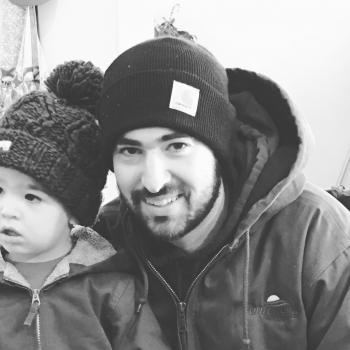 “The kids…and I, to be honest…like it when he’s gone.”
“The kids…and I, to be honest…like it when he’s gone.”
Michelle was at the end of her rope. She’d come in for advice on how to deal with her husband, Mark. As we talked, it became obvious that Mark’s presence in the home—like oil leaking into a fresh water aquifer—created a toxic environment.
Mark was always on edge. Or stressed. Or quiet. Or grumpy. Sure, occasionally he was happy. But that’s the problem with Mark—those closest to him never knew what they were going to get when he walked into the room. He’d walk outside into the garden in one mood, and then return to the house an hour later in another.
When Mark was home, Michelle and the kids were tense. Interacting with their husband and father was like playing hot potato with a hand grenade. So when he left the house for business or a golf trip, they breathed deeply and sighed a breath of relief.
Can you imagine anything more tragic than having your own family enjoy your absence?
I’ve been surprised by how frequently I hear some version of Michelle’s comment. I’ve been a pastor for about eleven years, and I heard dozens of spouses say that they rest a bit easier when their “loved one” isn’t around.
One of the hardest, but most vital questions we need to ask ourselves as husbands, wives, fathers, and mothers is: What does my presence in the home produce? To get at that answer, we need to ask other questions, such as:
- How do my children respond when I walk through the door?
- Is how I’m interacting with my spouse and children when I’m home causing them to celebrate when I leave? Or, are they sad to see me go?
- Do I create an environment where people are comfortable, relaxed, and free to be who they are and know that they are deeply loved?
- Do my kids look at me with a sense of uncertainty? Can I see a sense of fear or anxiety in their eyes when I walk into the room?
There’s nothing fun or pleasurable about asking these questions. The answers could be searingly painful. But if the goal is being the best husband, wife, father, and mother we can be, we must be brutally honest with ourselves.
That meeting with Michelle took place about six years ago. Mark came in and met with Michelle and me a week later. Michelle shared those thoughts with him, and it crushed him. For a while. But then he started to make adjustments. He started to yell less. His mood swings leveled out and he became generally more pleasant. He became a much more positive, supportive figure in his wife and children’s lives. Things are much better today than six years ago because Mark faced the truth. It led to brokenness, and then change.
Most importantly, Mark’s family now wants him around.
I’m curious: What type of environment do you create in your home?















